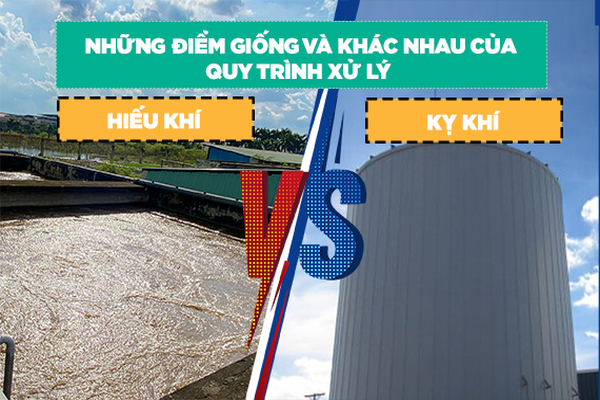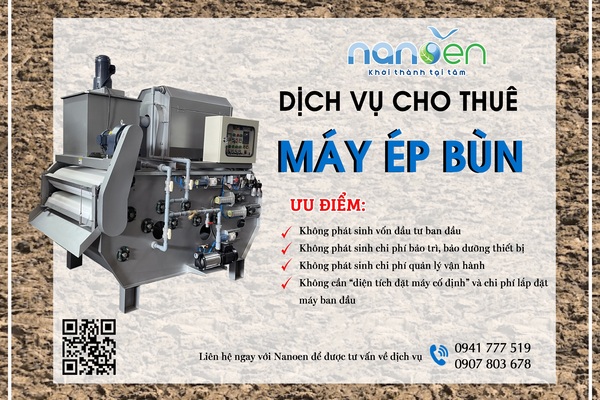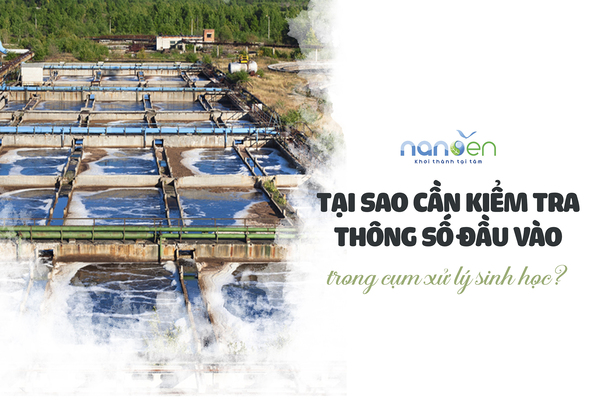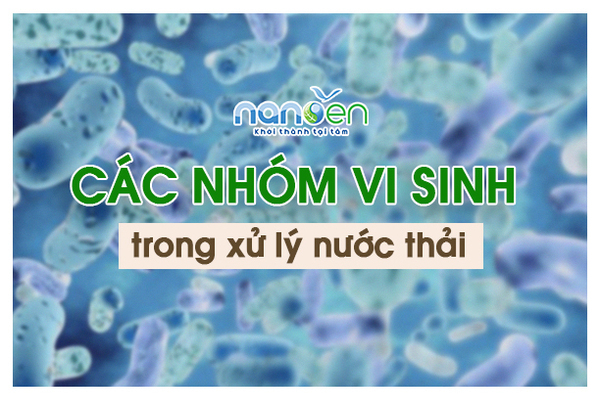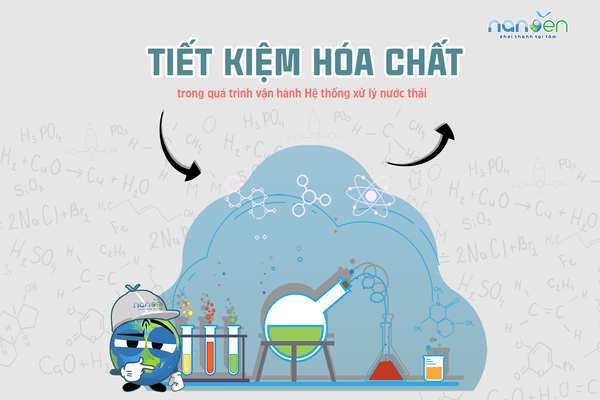1. Coagulation and Flocculation
Coagulation and flocculation are essential processes in most water and wastewater treatment systems. The purpose of this process is to enhance the efficiency of removing suspended solids (SS) in subsequent treatment stages. In industrial wastewater treatment, the coagulation and flocculation process is applied to:
-
Improve the efficiency of secondary treatment stages;
-
Remove heavy metals from wastewater;
-
Reduce the color intensity of wastewater;
-
Adapt to periods of increased loading;
-
Achieve wastewater discharge standards at low cost.
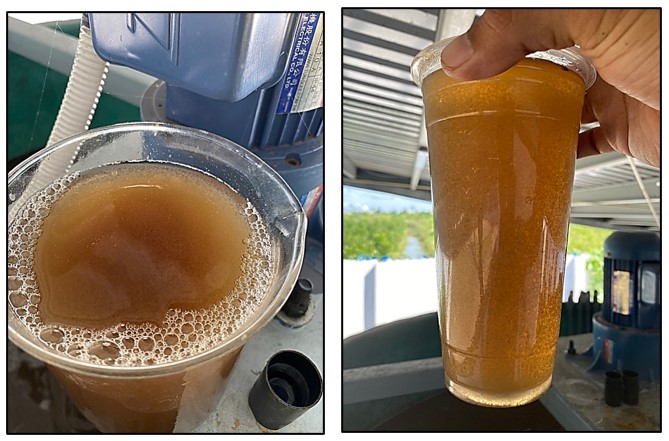
Flocs form in the flocculation - flocculation system
(Source: Nano Environment Company)
The types of chemicals used in the flocculation process mainly include:
-
Flocculants: PAC (Polyaluminum Chloride), Aluminum sulfate (alum), Ferric chloride, Ferric sulfate, Lime,...
-
Flocculating agents: Anionic polymers, Cationic polymers,...
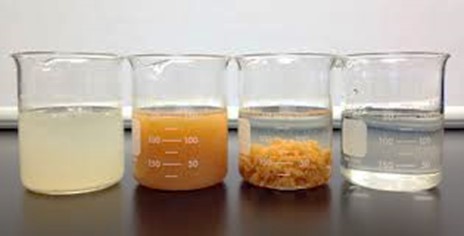
The processes of flocculation and floc formation occur as follows
2. NATURE OF FLOCCULANT PARTICLES IN WASTEWATER
Flocculant particles are extremely small and cannot be seen with the naked eye, with sizes ranging from 0.001mm to 10mm. The ratio of mass to surface area of these particles is very small, and they have a tendency to adsorb ions from the surrounding environment.
In wastewater, there are two main types of flocculant particles: hydrophobic and hydrophilic.
The critical factor contributing to the stability of these flocculant particles is their surface charge. Surface charge is influenced by various chemical components present in the wastewater and the flocculant particles themselves.

The arrangement model of the charge of flocculant particles (Wang et al., 2005)
Read more: USBF - Biological technology combined with upflow sludge blanket filtration
3. FACTORS INFLUENCING THE FLOCCULATION AND FLOC FORMATION PROCESS
There are several factors that influence this process, and Nanoen will list the main factors as follows:
a. Density of flocculant particles
This factor affects the amount of flocculant used and the efficiency of the flocculation process. A high density of flocculant particles will require a high amount of flocculant to be used. Conversely, a low density of flocculant particles will slow down the flocculation process due to limited opportunities for particle contact.
Furthermore, it's important to note that a high density of flocculant particles will result in more chemical usage.
Read more: Save chemicals during wastewater treatment system operation
b. Dosage of flocculant
The dosage of flocculant used depends on the concentration of flocculant particles and the pH of the wastewater.
-
A low dosage may not provide enough stability to the flocculant particles.
-
An adequate dosage provides sufficient stability to the flocculant particles.
-
An excessive dosage may lead to over-stabilization of the flocculant particles.
-
A dosage exceeding saturation levels may result in the formation of metal hydroxide precipitates, which can adhere to flocculant particles and remove them from the wastewater.
c. Zeta potential
The larger the zeta potential, the greater the electrostatic repulsion force of the flocculant particles and the less stable the flocculant particles.
d. Affinity of flocculant particles with water
Hydrophilic flocculant particles have high stability because the flocculant molecules are reluctant to replace the position of water molecules on the surface of the flocculant particles. The stability of hydrophilic flocculant particles depends more on their affinity with water than surface charge.
e. Anions in the solution
Using aluminum or iron salts at high dosages can affect the stability of flocculant particles. However, this phenomenon may not occur if the wastewater contains anions such as sulfate or phosphate.
f. Cations in the solution
The presence of cations such as Ca and Mg in wastewater helps to flocculate negatively charged flocculant particles better by reducing their negative charge and electrostatic repulsion force.
g. Temperature
Temperature reduces the efficiency of the flocculation process, especially when using aluminum salts. Therefore, using iron salts instead of aluminum salts is recommended for low-temperature water flocculation. Higher temperatures can increase the flocculation process due to the following mechanisms:
-
Increase reaction rate.
-
Reduce the time needed to form flocs.
-
Reduce the viscosity of water.
-
Change the structure of larger flocs.
Through this article, Nanoen hopes that customers will have a better understanding of the mechanism of chemical treatment. In the future, to continue the success of previous courses (Wastewater Treatment System Operation Training Course organized by Nanoen in collaboration with Can Tho University), Nanoen plans to organize a Training Course on Operation of Chemical Treatment Methods in Wastewater Treatment Plants. Nanoen hopes to receive the attention and participation of customers.
Read more: Wastewater Filtration Technology
A reputable provider of environmental dossier services and wastewater treatment system construction
Nanoen is a company operating in the environmental field, and throughout its operation, Nanoen has gained the trust of customers due to its honesty, dedication, and responsibility towards customers and products.
With a team of experienced staff, we offer comprehensive services from environmental dossier consulting to design, construction, operation of environmental treatment systems, reoperation, and supply of microorganisms,...
Nanoen is always ready to provide the best service experience that meets the needs of our customers.
Nanoen
Address: 661E/29, Vo Van Kiet Street, Binh Yen A Quarter, Long Hoa Ward, Binh Thuy District, Can Tho City
Hotline: 0941.777.519 - 0907.803.678 - 0901.229.798
Email: [email protected]
Facebook: www.facebook.com/nanoentech




